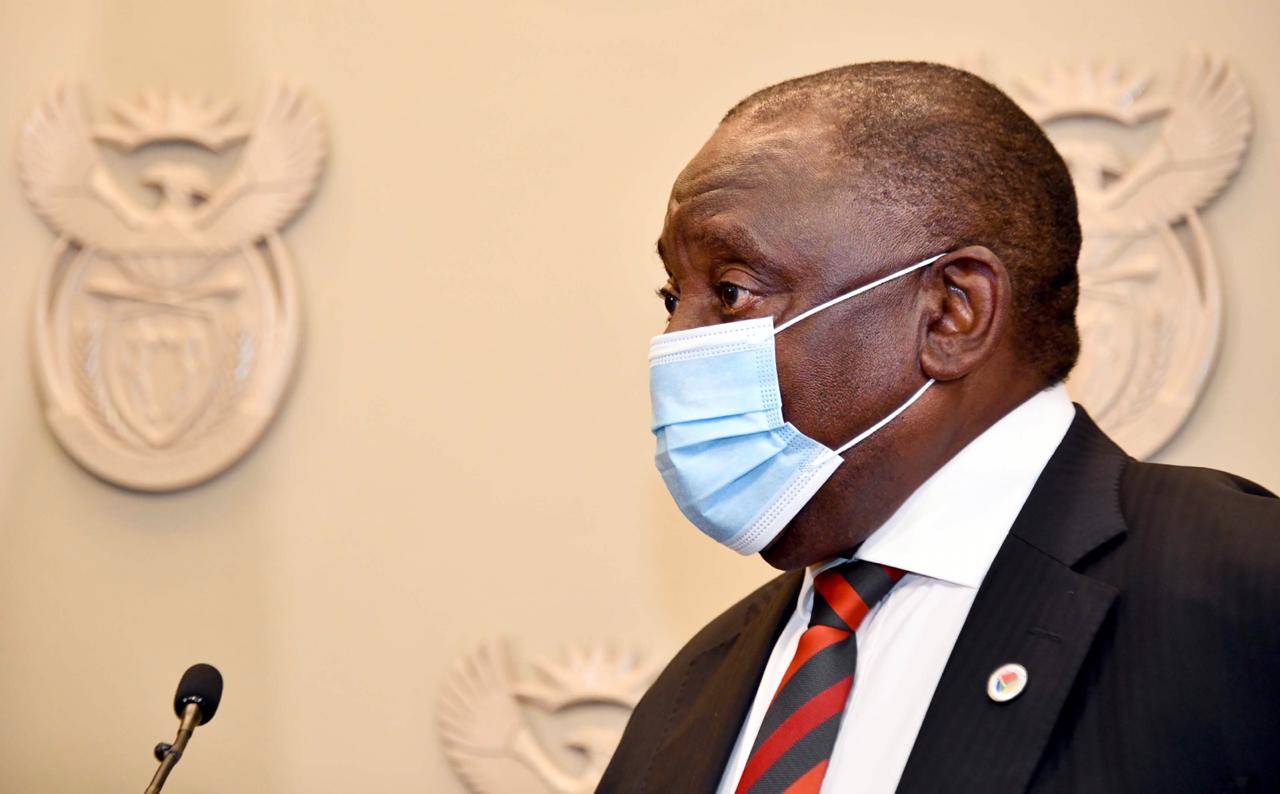
- President Cyril Ramaphosa announced that South Africa would receive an initial order of 30 million doses of Johnson & Johnson vaccine produced at the Aspen plant in Gqeberha.
- Ramaphosa called on developed countries hogging vaccines to end the "vaccine apartheid" and release vaccines for developing countries, especially in Africa.
- Ramaphosa admitted the government had lost a "bit of time" in its plans to vaccinate the majority of the population.
President Cyril Ramaphosa has conceded that the South African government had fallen behind in its plans to vaccinate South Africans, but said they were not sleeping on the job.
Ramaphosa was speaking during an oversight visit at Aspen Pharmacare sterile manufacturing facility and Coega Special Economic Zone at Gqeberha in the Eastern Cape on Monday.
The government was aiming to vaccinate 40 million South African citizens before the end of the year in order to achieve herd immunity, but has so far only managed to inoculate frontline workers.
South Africa suffered a blow in February when it transpired that a million AstraZeneca Oxford vaccine doses it acquired from India, were not effective against the new strain of the coronavirus.
He defended government, saying this delay did not necessarily mean the government had failed, adding that South Africa was still on track.
Ramaphosa said: "We have lost a little bit of time, but we are still on target in terms of our phase and we are now going to speed up the whole process of getting these vaccines," he said, adding:
He explained that the slow pace was due to the unavailability of vaccines. "You will remember that we acquired vaccines initially from India and through scientific processes, we found that they were not efficient for the variant that we have. We then had to source other vaccines," said Ramaphosa.
He added that the availability of vaccines was a challenge that all countries were going through.
"You go to Europe, you will hear that they've got a challenge of availability. Japan has started much later, as the third largest economy in the world in vaccination because availability for them was also a challenge," said Ramaphosa.
"We need to look at the issue of availability and look at the efforts that we are now embarking upon and making. Part of the reason why we have come here, is to ensure that we speed up the process of the availability of our vaccines. That is why we had to confirm that we are going to get our 30 million vaccines from Johnson and Johnson."
Ramaphosa slammed developed countries for hogging vaccines saying "vaccine apartheid" must come to an end.
"Vaccine apartheid must come to an end because in the end, in the whole world, no one is safe until everyone is safe so all of us must be treated equally across the world and vaccines must be treated as a public good, available at affordable prices right across the board," said Ramaphosa.
Restrictions
Ramaphosa also announced that the national coronavirus command council will meet on Tuesday to discuss whether further restrictions were needed to be imposed to counter a possible spread of infection during the Easter break.
Ramaphosa said a circulating video of a wild party at a Gqeberha beachfront, would be discussed at the meeting where Eastern Cape Premier Oscar Mabuyane and Nelson Mandela metro mayor Nqaba Bhanga would make suggestions.
The president was accompanied by Deputy President David Mabuza in his capacity as chairperson of the Inter-Ministerial Committee on Covid-19 Vaccines.
Mabuza and Ramaphosa were joined by Health Minister Zweli Mkhize, Acting Minister in the Presidency Khumbudzo Ntshavheni, Mabuyane and Bhanga.
The visit to the Aspen Pharmacare Covid-19 sterile manufacturing facility focused on progress in vaccine production as part of the partnership between government and the private sector.
Ramaphosa announced the government had made an initial order for 30 million doses of Johnson & Johnson vaccines produced at Aspen's Gqeberha plant.
Ramaphosa further announced that Aspen would manufacture 220 million of the doses for Africa.
He said the number of doses to be produced for the continent would, at a later stage, be increased to 400 million.
In November 2020, Aspen Pharmacare collaborated with Johnson & Johnson to establish the capacity required for the manufacturing of the Johnson & Johnson vaccine at Aspen's sterile facility in Gqeberha.
This new sterile manufacturing facility contained high-technology equipment and systems that would be used to manufacture state-of-the-art sterile drugs and vaccines.
The facility packaged these products into vials, ampoules and pre-filled syringes.
Aspen had invested more than R3 billion in the facility which would further provide life-saving medicines for the domestic and export markets.
The internationally accredited facility had the capacity to produce up to 300 million doses of the Johnson & Johnson vaccine a year.
